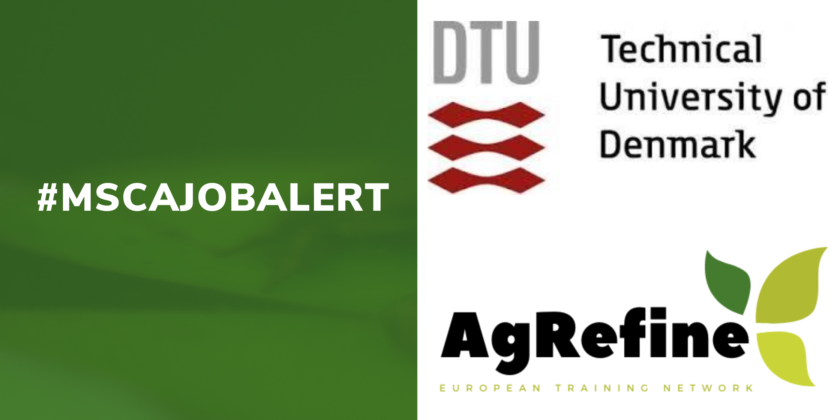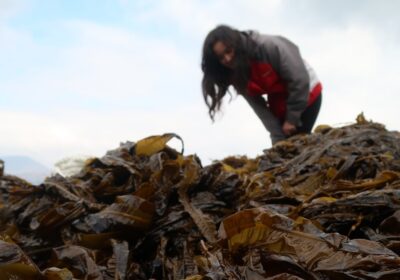ESR5: Bio-succinic production from TPB-2nd phase biogas and AD-biorefinery residues
Succinic acid (SA) is commonly produced from petrochemicals. When SA is produced via fermentation, CO2 is consumed. The unique process developed by DTU integrates biogas upgrading with SA based-fermentation, whereby gaseous CO2 provided from biogas and carbohydrates will be provided directly from pressed grass/seaweed are converted into two products: bio-methane (CH4>95%) and bio-SA (green building block). Additionally, ensiled grass/seaweed produced by TPB’s 3rd phase reactor will be used as alternative carbohydrate source for bio-succinic acid production.
Initially based at DTU under the supervision of Prof. Irini Angelidaki and Dr. Merlin Alvarado-Morales, the suitable candidate will:
- Develop and validate at lab-scale, an efficient conversion process to produce bio-SA from gaseous CO2-rich streams and sugar-rich hydrolysates (produced from pressed grass and seaweed), using Actinobacillus succinogenes 130Z as the fermentative organism,
- Screen for a more robust and stable industrial organism which will be more suited to the needs of the TPB,
- Perform microbial strain improvements whereby a novel process technology and novel CO2 supply system for enhancing conversion efficiencies of the fermentation-based processes, will be implemented and tested at lab-scale,
- Go to Avecom (Belgium) for a secondment under the supervision of Prof. Verstraete, to learn about their manufacturing and production practices whereby insights into their applicability to the bio-SA bio-methane production processes can be obtained.
Relevant disciplines;
The candidate must have a Master level degree in a discipline with a strong focus on:
- Process/Chemical/Biochemical Engineering,
- Biotechnology
- Microbiology
- Microbial Kinetics
- Excellent proficiency in written and spoken English (CEFR Level C1)
Researchers must not have resided or carried out their main activity (work, studies, etc.) in Denmark for more than 12 months in the 3 years immediately before the recruitment date.
Closing date: 16th August 2020 New closing date of September 2nd
Expected start date: September 2020
To apply:
Applicants must send their:
- CV,
- detailed academic transcripts in the form of certified copies of all undergraduate and postgraduate level certificates,
- a motivation letter and
- three reference letters from previous professors or mentors.
Applicants must have an ability to understand and express themselves in both written and spoken English to a level that is sufficiently high for them to derive the full benefit from the network training. Candidates must have excellent proficiency in written and spoken English (CEFR Level C1) and provide evidence that they fulfil the specific University recruitment criteria.
Please send your application to agrefine@ucd.ie
Master level degree in a discipline with a strong focus on:
- Process/Chemical/Biochemical Engineering,
- Biotechnology
- Microbiology
- Microbial Kinetics
Excellent English – written and spoken English (CEFR Level C1)
The candidate must have a Master level degree in a discipline with a strong focus on:
- Process/Chemical/Biochemical Engineering,
- Biotechnology
- Microbiology
- Microbial Kinetics
- Excellent proficiency in written and spoken English (CEFR Level C1)
Researchers must not have resided or carried out their main activity (work, studies, etc.) in Denmark for more than 12 months in the 3 years immediately before the recruitment date.
Maximum 3-year full-time employment contract will be issued in accordance with the Marie Skłodowska-Curie Action regulations for Early Stage Researchers. All hired researchers will be registered on Doctoral Programmes at relevant institute and participate in all training events and undertake mobility with selected industry partners. In case the student is enrolled in a doctoral programme in a country where the duration of the PhD study is beyond the 3-year-MSCA contract, additional funding for the additional year(s) will need to be sought.
The successful candidates will receive an attractive salary in accordance with the Marie Skłodowska-Curie Actions (MSCA) regulations for early stage researchers. The exact salary will be confirmed upon appointment and is dependent on the country correction coefficients (to allow for the difference in cost of living in different EU Member States).




